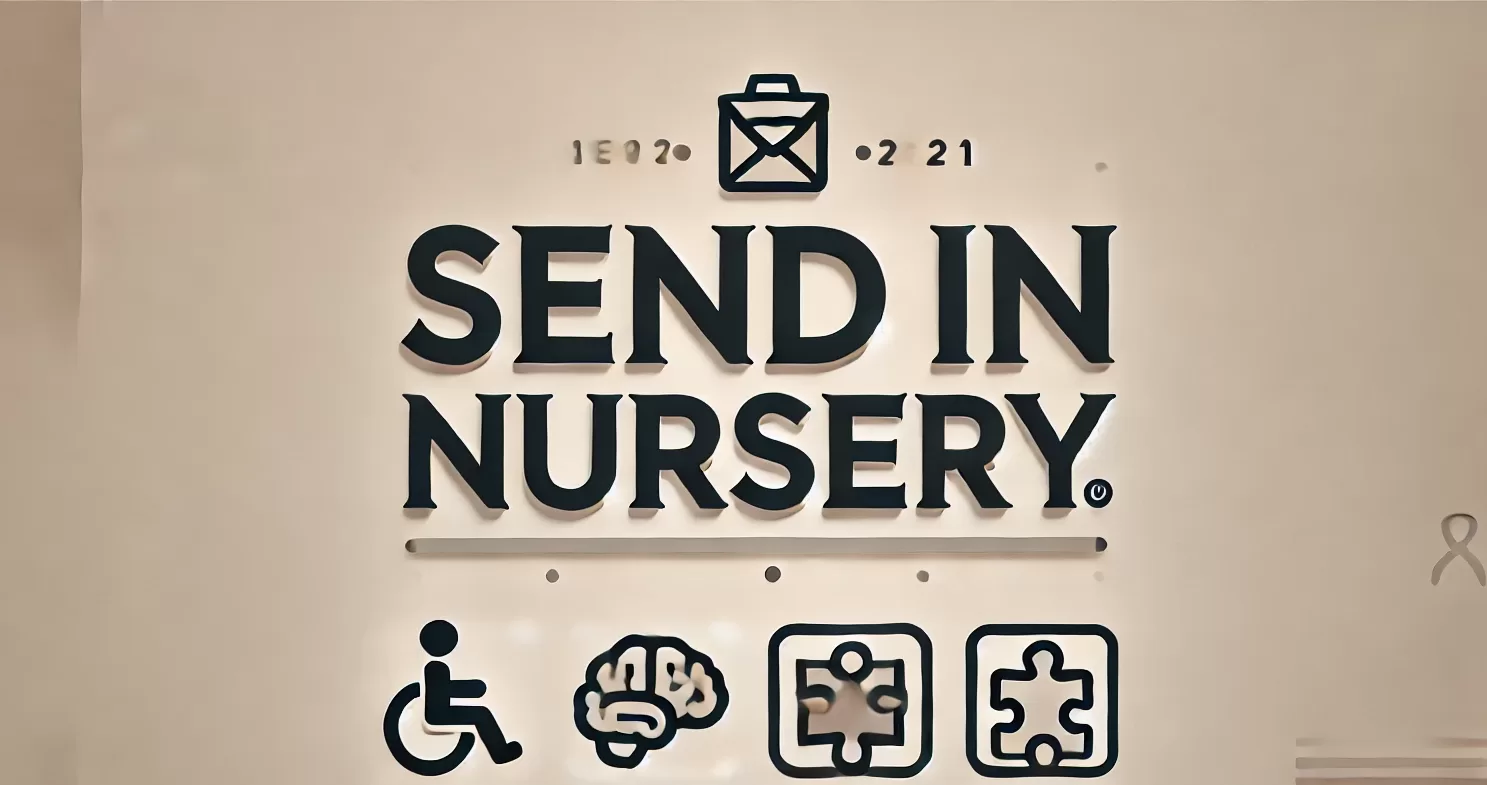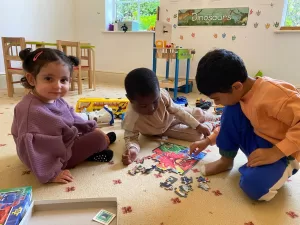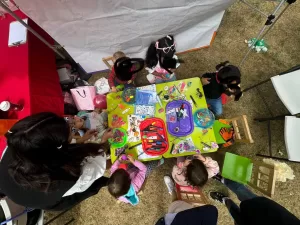In recent years, the recognition and understanding of Special Educational Needs and Disabilities (SEND) in nurseries have improved significantly. Early years are crucial for every child’s development, and for children with special needs and disabilities, proper care and support during this period are even more important. Nurseries play a pivotal role in nurturing the learning and emotional well-being of children with SEND, ensuring they have the same opportunities to grow, explore, and thrive as any other child. This article will provide insights into the best practices for supporting children with SEND in nursery environments, addressing the unique needs they may face and offering tips for educators and parents alike.
Understanding SEND in Nursery Settings
When we talk about children with Special Educational Needs and Disabilities, it includes a wide range of conditions and challenges. Some children may have learning difficulties that affect their ability to understand or process information, while others may have physical disabilities, sensory impairments, or speech and language difficulties. The level of need can vary greatly; some children may require minimal adjustments, while others may need one-to-one care and support throughout their time in nursery.
The key to supporting children with SEND in nursery is recognising their individual needs and tailoring approaches that suit them. In many cases, children with special needs and disabilities can thrive in mainstream nurseries if provided with the right environment, support, and resources.
The Importance of Early Intervention
One of the fundamental aspects of supporting children with SEND is early intervention. Research consistently shows that the earlier children with learning difficulties or disabilities receive targeted support, the better their outcomes are in terms of both academic achievement and social development. Nurseries are often the first formal educational setting these children experience, making it a critical time to identify and address their unique needs.
Early intervention can help mitigate some of the children challenges with SEND face and provide them with the tools and confidence they need to succeed. For example, children with speech and language difficulties can benefit greatly from speech therapy at a young age, while those with sensory processing disorders may thrive in environments that are adjusted to meet their sensory needs.
Creating an Inclusive Nursery Environment
Creating an inclusive environment where all children feel welcomed and valued is central to supporting children with special educational needs and disabilities in nursery. Inclusion isn’t just about providing access; it’s about ensuring every child can participate fully in nursery life. Here are a few practical ways nurseries can create a more inclusive setting for children with SEND:
- Adapt the Physical Environment: Children with physical disabilities may require changes to the nursery’s layout, such as ramps for wheelchairs or modified seating arrangements. Even small adjustments like ensuring pathways are clear of obstacles can make a big difference.
- Sensory-Friendly Areas: Some children with SEND, particularly those with autism or sensory processing issues, can become overwhelmed by loud noises, bright lights, or large groups of people. Setting up quiet, sensory-friendly spaces within the nursery can help these children regulate their emotions and feel more at ease.
- Visual Aids and Communication Tools: Many children with SEND, particularly those with learning difficulties or speech and language impairments, benefit from visual aids like picture cards, signs, or schedules. These tools can help them better understand what is expected of them and feel more in control of their environment.
Tailored Learning and Care Plans
Supporting children with SEND in nursery requires a highly individualised approach. One effective strategy is the development of a tailored learning and care plan. These plans, often created in collaboration with parents, educators, and SEND specialists, outline the specific support a child needs and how it will be provided.
Key elements of a successful SEND care plan might include:
- Goals and Targets: Establishing clear, achievable goals for the child, such as improving social interaction or developing specific skills, helps track progress and ensures that support remains focused and effective.
- Preferred Learning Styles: Children with SEND may respond best to particular teaching methods. Some children might benefit from hands-on, experiential learning, while others might prefer visual or auditory aids. Recognising and adapting to a child’s learning style can greatly improve their engagement and outcomes.
- Supportive Relationships: Children with special educational needs and disabilities often benefit from consistent, trusting relationships with adults in their care. Assigning key workers or one-to-one support staff can help build a strong bond and provide the emotional support these children need to feel secure in their environment.
Collaboration with Parents and SEND Specialists
Effective support for children with SEND in nursery is built on collaboration. Parents are often the best source of information about their child’s needs, preferences, and challenges, so regular communication between nursery staff and parents is essential. This partnership ensures that the care and support a child receives at nursery are aligned with the support they receive at home, creating a consistent approach to their development.
In addition to working with parents, nurseries can benefit from the expertise of SEND specialists such as speech and language therapists, occupational therapists, and educational psychologists. These professionals can provide invaluable guidance on how best to support children with specific needs, as well as offering training and resources for nursery staff.
Managing Emotional and Behavioural Challenges
For some children with SEND, managing emotions and behaviours can be a significant challenge. Children with autism, for example, may struggle with changes in routine or sensory overload, which can lead to anxiety or behavioural outbursts. Understanding the underlying causes of these behaviours is key to supporting children with special needs and disabilities effectively.
Strategies to manage emotional and behavioural challenges include:
- Consistency and Routine: Children with SEND often feel more secure when their day follows a predictable routine. Knowing what will happen next can reduce anxiety and help children feel more in control of their environment.
- Positive Reinforcement: Rewarding positive behaviour and achievements, no matter how small, can help children with SEND build confidence and develop new skills. Positive reinforcement encourages them to continue engaging with their learning and social activities.
- Emotional Regulation Techniques: Teaching children how to recognise and manage their emotions is an important part of supporting their development. Simple techniques like deep breathing exercises or providing a quiet space for children to calm down can be incredibly effective in helping them manage overwhelming emotions.
Staff Training and Development
To provide the best possible care for children with SEND in nursery, it’s crucial that nursery staff receive ongoing training and development. This training should include not only an understanding of different types of SEND but also practical strategies for supporting these children in everyday nursery activities.
Regular training ensures that staff are equipped with up-to-date knowledge on best practices, which ultimately leads to better care and support for children with special educational needs and disabilities. This might include learning about assistive technologies, specific teaching techniques, or even how to recognise early signs of SEND in children.
Conclusion
Supporting children with special educational needs and disabilities in nursery is not only about creating an inclusive environment but also about providing personalised care and learning opportunities that allow each child to thrive. By focusing on early intervention, collaboration with parents and specialists, and ongoing staff training, nurseries can ensure they are well-equipped to support children with SEND and help them reach their full potential.
Ultimately, every child, regardless of their abilities, deserves the chance to flourish in a nursery environment that understands their unique needs and celebrates their strengths. With the right support, children with SEND can develop the confidence, skills, and independence they need to succeed in nursery and beyond.






